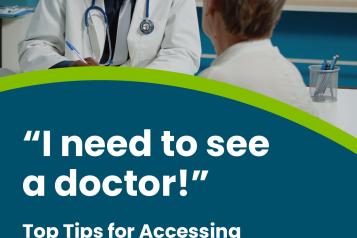GP recovery plan - Healthwatch response

NHS England has published its GP recovery plan. It outlines that patients will be able to get prescription medicine directly from the pharmacist without the need for a GP appointment for seven common conditions including urinary tract infection.
What's in the plan?
- Almost half a million women being able to go into their local pharmacy for oral contraception;
- Better phone technology, enabling practices to ‘manage multiple calls and redirect them to other specialists, such as pharmacists and mental health practitioners, if more suitable’.
- Extra training provided to practice staff;
- Half a million people a year being able to self-refer to services including physiotherapy, hearing tests, and podiatry, without seeing their GP first;
- A change in local authority planning guidance to mean access to primary care for new residential areas are given the same level of importance as education.
Our response
Louise Ansari, our CEO, said:
“The proposals outlined by NHS England are a step-change in how primary care services will be delivered, be it new digital phone systems to prevent people having to stay on hold for long periods of time or training up teams of care navigators to help patients manage GP referrals to other services. What’s more, these changes have been driven directly by people’s feedback and suggestions for improvement.
“When people manage to see a GP or another practice team member, they continue to tell us that the service provided is usually high quality and often very caring. Yet for millions of people, getting that appointment is often made difficult by the early morning scramble for appointments or poorly designed digital booking systems. These frustrations have boiled over in recent years, translating into some of the lowest-ever satisfaction levels with the NHS.
“We know that part of the solution to addressing problems in primary care is to create more capacity, but this will take time. This plan acknowledges that there are actions the NHS can take today to make accessing care easier.
“Over the coming months, we will be working with NHS England to communicate these changes to patients and the wider public, helping them understand how to access the right service at the right time, and feeding back people’s ongoing experience to ensure plans stay on track.”

